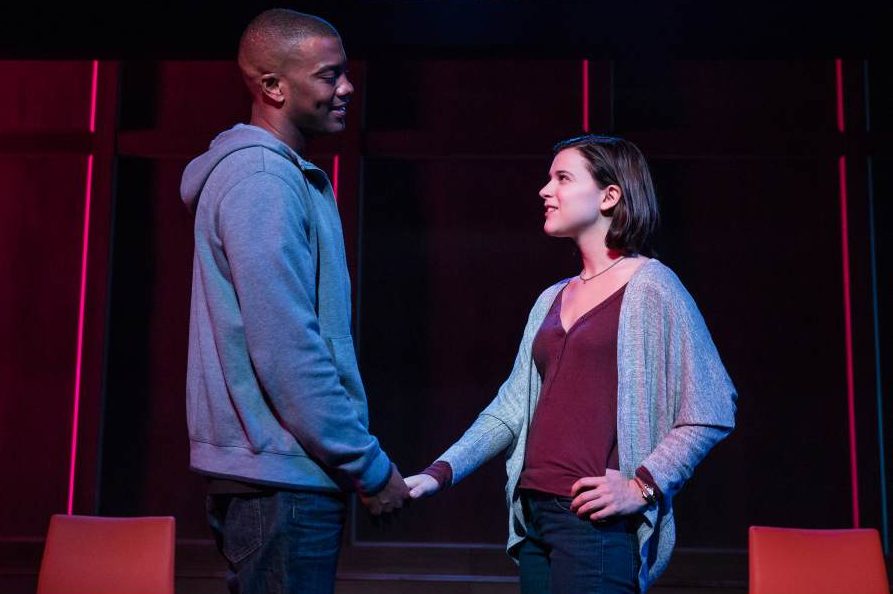

Actually, now playing at the Studio at Stage II at New York City Center, comes at a bleak time in the landscape of sexual politics. This moment is bleak not because things like abuse or rape have been nonexistent until now, but because the world now appears willing to recognize it happens. We’ve chosen to finally see and believe. Our worst fears have been confirmed; that these are not isolated incidents or acts committed by a singular predator that can be made an example of, thereby absolving the broader society. No -- these incidents are informed and reinforced by culture and power structures: gender, orientation, race, economic status, etc. It’s obvious, yes, but obvious doesn’t mean it’s dealt with.
When I saw Actually, written by Anna Ziegler and directed by Lileana Blain-Cruz, I was in the frame of mind that I couldn’t unlock my phone without a disturbing story surfacing, another blow to a confidence in -- what is either taught or assumed to be -- inherent human goodness. As the play unfolded before me, however, I was struck by its humor (sometimes it was a relief, sometimes it took me out of the moment) and compassion for its two characters, Amber (a competent Alexandra Socha) and Tom (a devastating Joshua Boone).
Actually is a literal exercise in “he said, she said,” since most of the performance plays like an extended monologue, weaving together Tom and Amber’s recollections, stories from their lives (about sex and relationships to their own bodies), their memory of the night in question, and the subsequent Title IX hearing on campus. After meeting up at a party (they’re both freshmen at Princeton University), Tom and Amber get increasingly drunk and head back to Tom’s room, where everything changes. While two people on stage telling their stories is an evocative way to explore perception, memory, and structure, I found myself alienated by the self-aware telling of the story by those who were ostensibly “retelling” events, particularly because it included something as traumatic as rape. The conceit made it too aware, too detached, too clinical, even if it provided insight into Tom and Amber as specific individuals, not just “he” and “she.” The asides and stories were entertaining and illuminating, but they often overlapped in such a way that was jarring and did not ring emotionally tuned. For instance, Amber talks about the first time she had sex when Tom realizes he is being accused of rape while meeting with the Dean. It’s a deliberate, but it doesn’t play well. The climax -- when Amber and Tom confront each other, speaking to each other when for so much of the play, they spoke over or after one other -- was affecting, mainly because Joshua Boone handles Tom’s recognition with staggering range. The final image is stunning, but felt unearned, which isn’t to say Actually is without merit. Certainly any art capable of starting conversation regarding these difficult issues is worthy of attention.